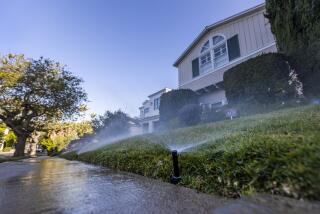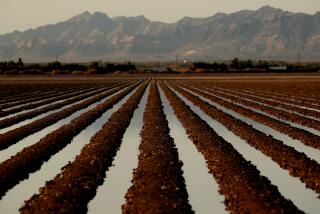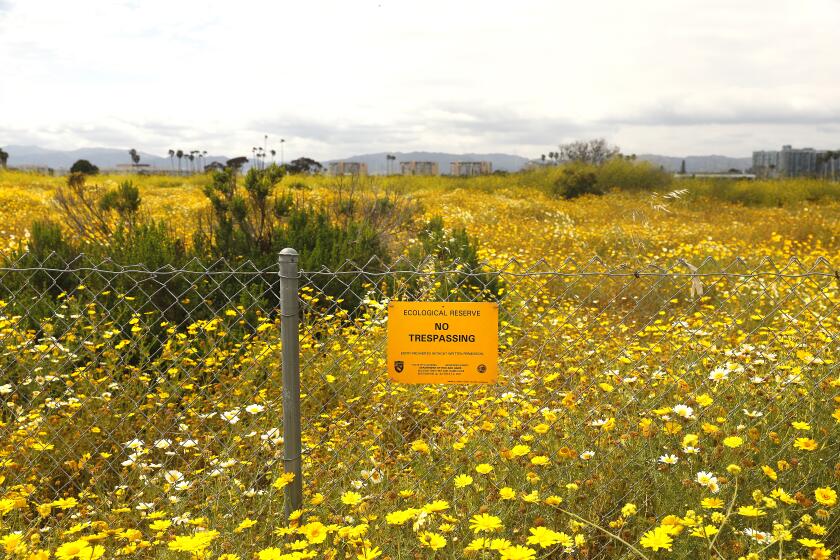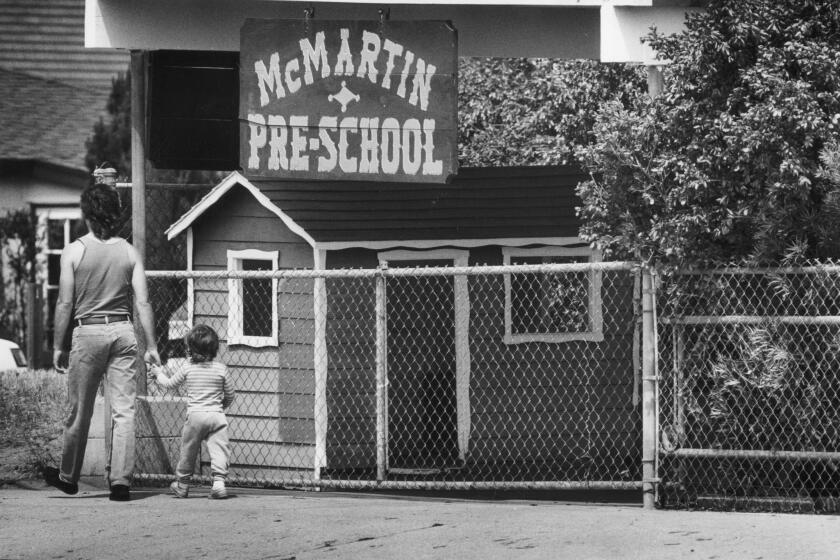Letters to the Editor: We’ve become too cynical to get through a drought
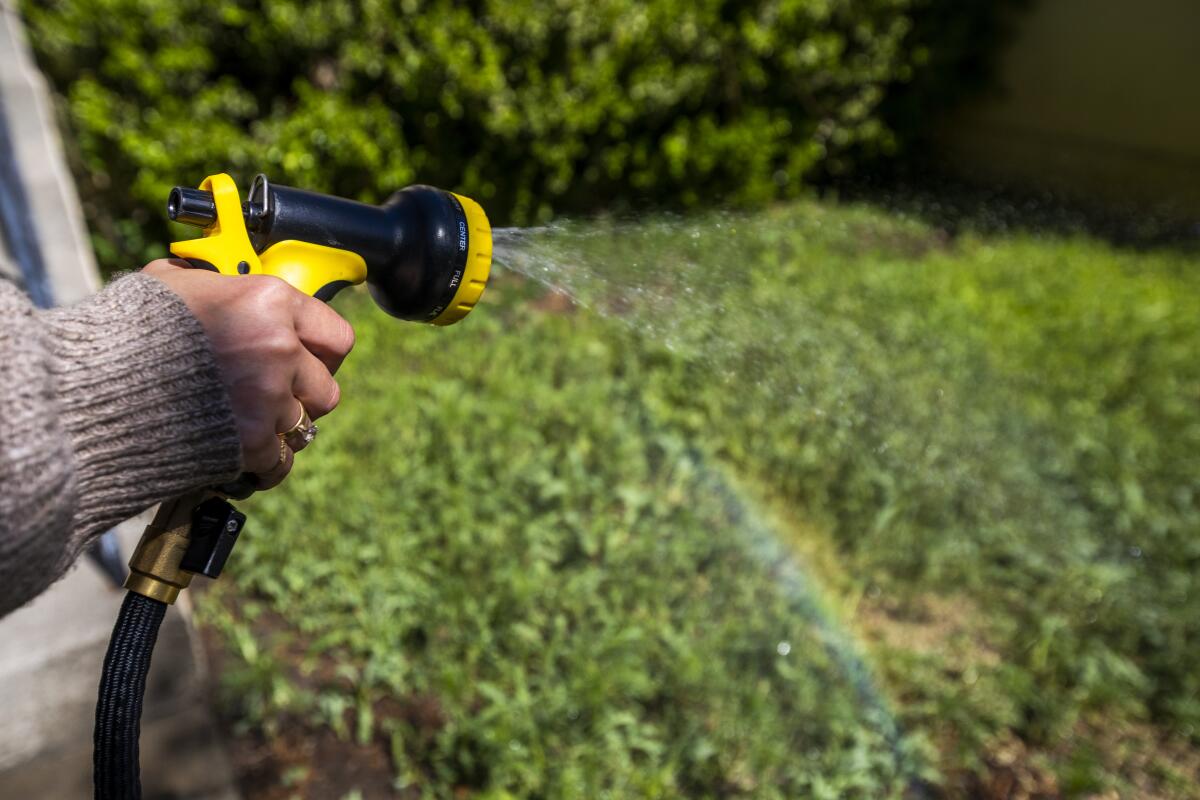
To the editor: No one in politics wants to be the messenger. Since virtually everything now is politicized, there are no effective, widely trusted messengers. (“California’s water conservation has been a bust so far. Will drought restrictions work?” May 7)
The rhetorical methods that drive resentment politics have been honed to a science, and there is widespread distrust of government. This is the go-to tool of those who benefit from weakening and privatizing everything with the word “public” in front of it (education, health, lands and institutions).
This is playing out in the anemic response to the drought by the general citizenry, most of whom do not have sense of shared interests with their neighbors.
If the shared climate crisis cannot motivate us to overcome the pitting of all-against-all as orchestrated by minority interests that have imbued “the market” with mythic curative powers, there is virtually no limit to the amount of societal destruction that awaits.
Gary Stewart, Laguna Beach
..
To the editor: Here is what gives on water use. It is the ongoing contradiction of the constant cry for restrictions on residential water use versus the continued approvals granted for commercial development around Los Angeles, such as for more downtown skyscrapers.
The skyscrapers have a typical formula of hotel or office space, combined with condos or “market rate” apartments and retail space. These developments do not address housing affordability, but they definitely will use a lot of water.
In the meantime, tract-home residents are being told to abandon every patch of green grass and take fewer showers, else someday there might be no water from the kitchen tap.
Throughout history, settlements were established near a water source. In modern times, settlements that need more water pipe it in from distant sources. Now, the distant sources are drying up.
When will our state and local leaders have the hard conversations and make difficult decisions about limiting growth and development in order to right-size our communities relative to their available natural resources?
Carla St. Romain, Pasadena
..
To the editor: An important underlying aspect of the lack of compliance with the 15% voluntary reduction in household water use is the fact that California households currently average 102 gallons per day, compared with the U.S. average of about 300 gallons.
While it’s certainly feasible to reduce use household use levels to 85 or fewer gallons per day, most Californians would be more motivated if the state would ban or severely restrict commercial agricultural production of water-wasteful crops such as almonds, alfalfa and cotton, and implement restrictions on golf courses.
Directing mandates more fairly rather than blaming those with less political influence would get results.
Carl Southwell, Rolling Hills Estates
..
To the editor: We must replace lawns with drought-tolerant plants, but if we also want to support a healthy ecosystem, the plants we choose should be native to California.
Not only do native plants use vastly less water than ornamentals and sod, they are the food that wildlife need to survive.
They also happen to be beautiful and aromatic, and it is a joy to watch the bees, butterflies, beetles, birds, lizards, bunnies and other animals flock to them.
Remember to only plant in the fall and winter, and to water regularly in winter and spring until the plants are established. But once established (typically a couple of years), native plants need very little water, and they go dormant in the summer and do not want water.
If you want to save water and create a thriving habitat, go with native plants.
Tessa Charnofsky, West Hills
